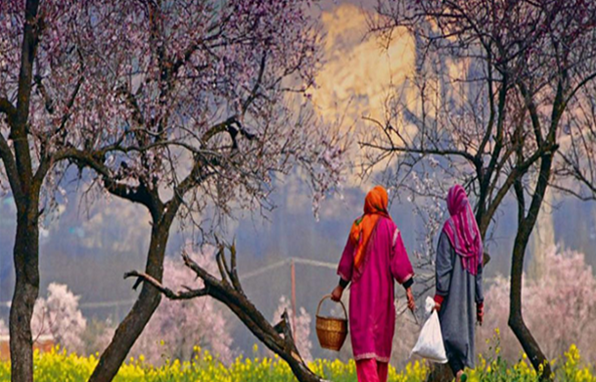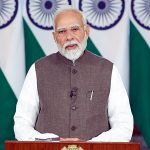International days are the occasions and opportunities to educate and aware people around the world on issues of public concern, to mobilize political will and resources to address global issues and to celebrate and reinforce the achievements of humanity. These days act as effective advocacy tools.
International Women’s Day is observed on March 8, every year The United Nations has decided this year’s theme as ‘Invest in Women: Accelerate Progress’ is aimed at tackling economic disempowerment. While the campaign theme for the same year is ‘Inspire Inclusion the Day is celebrated to focus on gender equality and spread the message that without the inclusion of half of the population of the globe no vision can ever be fulfilled.
The day is a global day celebrating the social, economic, cultural and political achievements of women. The day also marks a call to action for accelerating gender parity. Significant activity is witnessed worldwide as groups come together to celebrate women’s achievements or rally for women’s equality. This day celebrates women’s achievements, raise awareness about women’s equality, lobby for accelerated gender parity, and fundraise for female-focused charities.
When we talk of Jammu and Kashmir, women are the most vulnerable and worst-hit section of society. They don’t only suffer from intense harassment but also undergo traumatic experiences with prolonged depression making them mentally sick. Thousands of women who have become widows have to bear the entire responsibility of bringing up their children and running the household expenditure. The results drawn were; women in Jammu and Kashmir are still left with a lot of issues and challenges related to health, economy, education, politics, domestic violence, declining sex ratio, female feticide and infanticide, dowry harassment, eve-teasing, unequal wages and child labour.
The central government, Jammu and Kashmir administration, NGO’s and local bodies should work jointly for the empowerment of women in Jammu and Kashmir. It remains one of the regions with the highest female illiteracy and unemployment rate in the country.
Jammu and Kashmir, women face a lot of challenges that stop them from entering the workforce as compared to their male counterparts or even their female counterparts in the rest of the country, leading to the percentage of unemployment in women being alarmingly higher than the women of neighboring states.
This high rate of unemployment can be explained by a number of factors that sometimes are interconnected. The chief issue in this regard is the lack of educational opportunities. According to the census report of 2011, only 58.01 per cent of women in Jammu and Kashmir are literate as compared to 78.26 per cent male literacy. The lack of educational opportunities serves as the principal barrier between women and employment.
Between 2001 and 2015, cases of crime against women in Jammu and Kashmir have doubled from 1656 to 3363. About 70 per cent of these cases are domestic. This is a rising trend in Jammu and Kashmir and needs to be addressed.
Crimes against women have gone up since 2020. As against 3193 cases of crimes against women reported in 2019, the numbers have jumped to 3515 for the year 2020, the Crime Gazette 2020 that was recently released by Jammu and Kashmir Police revealed. Similarly, cases of rape, molestation and abetment or attempt to suicide have also seen an increase.
In addition, domestic violence is a major problem in India. The men beat up their wives and abuse them as they think women are their property. Women are afraid of speaking up. Similarly, the women who do actually work get paid less than their male counterparts. It is downright unfair to pay someone less for the same work because of their gender. Thus, we see how women’s empowerment is the need of the hour. We need to empower these women to speak up for themselves and never be a victim of injustice.
The most important message of this day is to make women capable of deciding for themselves and make them aware of their rights. There are various ways by which we can empower women. The individuals and government must both come together to make it happen. Education for girls must be made compulsory so that women can become literate to make a life for themselves.
Women must be given equal opportunities in every field, irrespective of gender. Moreover, they must also be given equal pay. We can empower women by abolishing child marriage which is still prevalent in some areas. Various programmes must be held where they can be taught skills to fend for themselves.
There is a need for a process that creates power in women to live a happy and respectable life in society. Women are empowered when they are able to access opportunities in a variety of fields such as education, profession, lifestyle, etc., without any limitations and restrictions. It includes raising their status through education, awareness, literacy and training. It also includes their authority to take decisions. When a woman makes a crucial decision, she feels empowered.
There is also a need to make the male counterparts realize the rights of women in the light of religion, law and morality. Muslim law provides all the opportunities for women to be empowered, respected and bars any discrimination. Islamic law provides financial security to a Muslim woman through her rights in the property inherited and on the basis of marriage. There is a need to aware the masses in general about Islamic jurisprudence so that justice, equality, fairness and equality of opportunity to all is achieved.
(Author is a writer, columnist and academician from Kupwara and can be reached at: [email protected])








